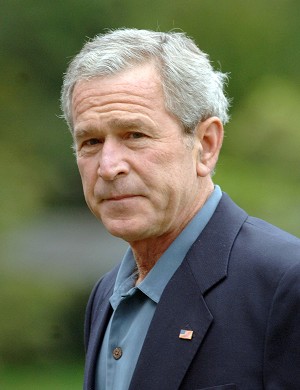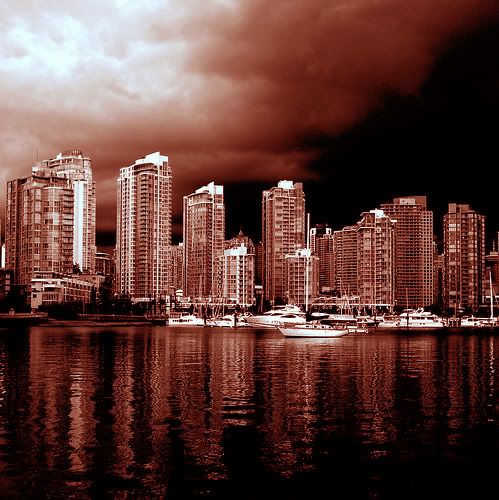desperate presidents
 george w. bush, leader of the free world, defender of democracy and human rights, acknowledges that secret cia prisons for terror suspects exist. these prisons started a month after 9/11 and exist in at least eight countries.
george w. bush, leader of the free world, defender of democracy and human rights, acknowledges that secret cia prisons for terror suspects exist. these prisons started a month after 9/11 and exist in at least eight countries.wow. first he admits iraq had nothing to do with the world trade center attack, and now he admits to the secret prisons. it's like bush was caught on video cheating on his wife or something, and now he's fessing up to everything. what's next, a blubbering apology? but baby! i love you baby, i promise i'll never do it again. i love you baby, know that! i love you! awww, who are we kidding? this administration will never apologize for anything.
on a side note, i've realized that it's not as much fun making jokes about the tired, mopey president. whatever happened to the texas ranger? where's the bravado? where are the wise cracks in the face of doom and gloom? where's that whole "either you're with us, or you are with the terrorists" come back? just hang in there, kitten; you only have two more years left.
here's the cbc article:
Bush acknowledges secret CIA prisons for terror suspects
cbc news
U.S. President George W. Bush has acknowledged for the first time that suspects in Washington's War on Terror were detained abroad in controversial secret CIA prisons.
The official admission on Wednesday confirmed rumours and media reports that have stirred controversy for months, both in the United States and in countries accused of hosting the facilities.
Bush defended the secret prisons, saying the detainees had provided vital information that prevented further attacks in the years after al-Qaeda militants killed about 3,000 people in the United States on Sept. 11, 2001.
"The most important source of information on where the terrorists are hiding and what they are planning is the terrorists themselves," Bush said in a White House speech.
"It has been necessary to move these individuals to an environment where they can be held in secret, questioned by experts and, when appropriate, prosecuted for terrorist acts."
Suspects allegedly included al-Qaeda's No. 3
The president said the suspects, who have all been transferred to the U.S. naval prison at Guantanamo Bay, Cuba, include:
- Khalid Sheik Mohammed, believed to be the No. 3 al-Qaeda leader before he was captured in Pakistan in 2003.
- Ramzi Binalshibh, accused of training to be one of the Sept. 11 militants who hijacked four planes.
- Abu Zubaydah, who was believed to be a link between al-Qaeda leader Osama bin Laden and many of the group's cells before he was captured in Pakistan in March 2002.
Detainees had 'unparalleled knowledge'
Media reports began surfacing in November 2005 that said the U.S. spy agency had been running had been running a covert prison system that has been run for nearly four years in at least eight countries, including several democracies in Eastern Europe as well as Thailand and Afghanistan. The secret detention system was said to have been conceived in the first months after the Sept. 11 attacks.
The reports ignited great controversy in many countries, with the European Union warning its members that such prisons would be viewed as violations of the European Convention on Human Rights and various EU treaties.
On Wednesday, Bush defended the covert system, saying the security of the United States depended on its ability to learn what suspected terrorists know.
He described the detainees as dangerous men with "unparalleled knowledge" of militant networks and plans for new attacks.
Bush said the Central Intelligence Agency employed "alternative" procedures to extract information from the suspects. The president insisted those techniques complied with U.S. laws, the constitution and international treaty obligations.
He refused to describe the methods of interrogation used by CIA agents, saying it would give terrorists a tool to learn how to resist such questioning.
Bush said the procedures were "tough and safe and lawful and necessary."
Prisons blocked 2nd Al-Qaeda attack: Bush
The president also alleged that without the secret prisons, al-Qaeda would have succeeded in launching another attack against the Americans.
Although he said he couldn't provide details, Bush said some of the alleged plots included attacks in the United States "probably using airplanes."
He said another plot involved attacks on buildings in his country.
The suspects also provided information on al-Qaeda's efforts to obtain biological weapons, he said.
Bush said he was acknowledging the program now because the CIA and military have finished questioning the suspects and are ready to prosecute them in military tribunals.
+Mini.jpg)




|